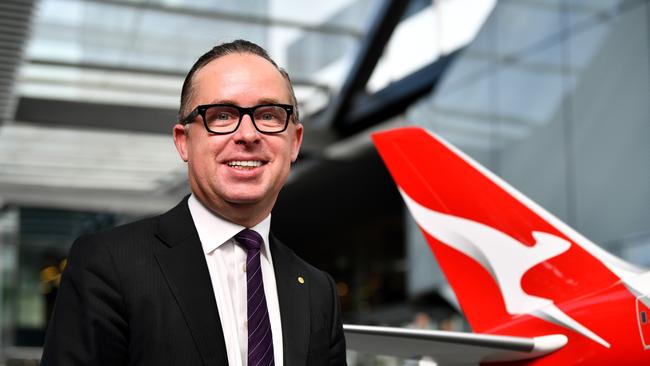
Here, in his own words, is what Qantas CEO Alan Joyce sees ahead in 2020.
You can read more from the CEO Survey across this summer.
How is your company affected by low-interest rates and what is needed to boost the economy?
A lower Aussie dollar makes us a more attractive destination for overseas travellers, which is good news for local tourism. It also influences where more price-sensitive consumers choose to take their holidays so that traffic flows can shift a bit from a trip to Hawaii to Bali. We’re keeping a close eye on whether the recent increase in housing prices will lead to stronger consumer spending and business confidence. The wealth effect is certainly a factor. In terms of investment, we haven’t changed our hurdle rates because aircraft are a long-term investment, so we need to consider the long-term cost of capital rather than what the cash rate is today.
What is the impact of government regulations on your company, including those applying to the financial sector?
There’s a lot of focus on rate cuts or government stimulus to get the economy moving, but I’m a firm believer that we need to get the corporate tax settings right. At 30 per cent, we’re really uncompetitive. If we lower the company tax rate, the investment will flow and so will economic growth, because that’s exactly what’s happened overseas. It was incredibly disappointing for the government not to take action on monopoly pricing by airports. We argued for an independent umpire to help put some balance in the system, but they rejected that. It’s a drag on growth because their charges push up airfares.
What percentage of company revenue is spent on research and development, and how is your company using technology to improve performance?
One of our biggest expenses is buying other people’s technology, namely new aircraft. When it comes to in-house research and sheer innovation, the standouts this year are the dry run flights for Project Sunrise and the research into jet lag we’ve done across our long-haul network. The Boeing Dreamliner has made it possible for us to fly direct from Perth to London. It’s the longest route on our network and also has the highest level of customer satisfaction. We’ve picked the Airbus A350 to fly even longer routes like Sydney to New York. That would have been impossible on a commercial basis just 10 years ago, but the technology has come a long way. We’ve set some big targets on carbon emissions, and part of that involves a $50m investment in helping to start up a biofuels industry in this country.
What are the three major policy issues facing the country and what should be done about them?
● Company tax – Australia needs to become globally competitive with our company tax system if we want to encourage investment. It’s no coincidence that countries with lower company tax rates, like Ireland, are seeing much bigger growth than countries with higher rates.
● Climate change – Climate change is an issue facing all businesses, and we know that airlines have a responsibility to cut emissions. We’ve committed to being carbon neutral by 2050, and over the next decade, we’ll be investing in biofuels to make a sustainable alternative to jet fuel.
● Industrial relations – the industrial relations system is a balancing act, and I think there is a better balance that could be achieved.
What are the major impediments to long-term growth facing your company and what can or is being done about them?
We are optimistic about long-term growth here in Australia and globally. Despite all the geopolitical and trade uncertainty around the world, mainly with Brexit and US/China sanctions, there are still a lot of positives out there.




Every year The Australian’s John Durie asks some of the biggest names in Australian business five key questions about what’s coming in the year ahead.